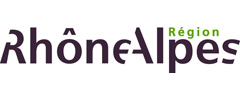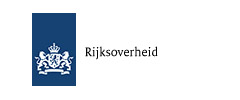The 4th Finland Dry Toilet Conference 2012 “Drivers for Ecological Dry Toilets in Urban and Rural Areas”
The WECF network was present with 8 oral presentations on the 4th Finland Dry Toilet Conference 2012 in Tampere, Finland. In total, 160 participants from 38 countries shared their experiences related to dry toilets during two full days. The conference was the 4th Dry Toilet Conference organized by the Global Dry Toilet Association of Finland.
06.09.2012 |Claudia Wendland
The overall theme was “Drivers for ecological dry toilets in urban and rural areas”. Highlights were first results of terra preta sanitation as well as experiences with implementing ecological dry toilet systems in emergencies.
Claudia Wendland, WECF coordinator for WASH, and Fedde Jorritsma, field officer in Central Asia, summarised the WECF experiences with 50 Ecosan (UDDT) Toilets at Schools in the EECCA countries of almost 10 years. “Firstly it is key to make a thorough planning for the software and hardware components of the UDDT in a school.” Based on WECF experiences, Claudia Wendland gave design criteria for no of restrooms and sizes of the faecal chambers and urine tanks. Secondly the operation and maintenance is the challenge. Bad smell can be a killer criterion for any sanitation technology. “If maintained well, no smell”, gives Fedde Jorritsma as conclusion.
Stefan Deegener from Hamburg University of Technology presented the results of Yuliya Fruman´s paper about “Acceptance of UDDTs in Eastern Europe, Caucasus, and Central Asia”. Data of around 800 individual UDD toilets constructed during the last year in the WECF network were analyzed and assessed. The overall acceptance was calculated based on 9 criteria of the household survey. It was found that 70% of the UDDT are well accepted in the whole region. One main conclusion was given: the toilet is better accepted if the financial contribution of the owner is higher.
Rostom Gamisonia from RCDA in Georgia and Anara Choitonbaeva from KAWS in Kyrgyzstan presented a holistic approach how ecosan can be up-scaled in villages in the Caucasus and Central Asia. RCDA is working with the communities and “Providing all-round-service for sustainable sanitation in rural and peri-urban areas of Georgia – including marketing, agriculture and energy” which is so successful that in the first village Khamiskuri most inhabitants implemented a UDDT and/or a solar collector. Rostom Gamisonia provides through its service all material and support which is needed, e.g. the UDDT seat made of ceramic or a UDD device made of metal. KAWS in Kyrgyzstan follow a similar approach and link these services to the drinking water committees which have been working successfully in more than 10 villages in Issyk Kul region.
Surayo Saidova from ASDPNau gave an example for “Equitable Access to Education and Development for Girls and Women - Improving women´s and girls´ hygienic situation in rural Tajikistan through implementing UDDT in schools and women development centers (WDC)”. In the rural villages of Tajikistan without reliable water supply, the UDDT is a very good solution to improve the sanitation conditions especially for women and girls. The required anal cleaning facilities were integrated in the toilet design and were well accepted.
Rauf Sabitov from Mountain Club Jablagy-Manas showed how UDDT can be implemented in the frame of eco-tourism in Kazakhstan, for the nature parks they developed mobile toilets which are placed only for the touristic season.
Nadia Andreev from Wisdom in Moldova presented the framework of her research work at UNESCO IHE. In the field of productive sanitation, she develops “A concept for a sanitation chain of UDDT and the semi centralised production of Terra Preta”. As UDDT is successfully introduced in Moldova and is up-scaling, Nadia Andreev works on further improvement of the UDDT products – urine and faecal matter - through terra preta production. On the conference she presented the first promising results of her pilot tests.
For further information on the conference where you can download the abstracts, papers and presentations, please visit http://www.drytoilet.org/dt2012/
Related News
Calling for periods free from plastic & hazardous chemicals
Letter to Frédérique Ries, MEP, European Parliament on behalf of the #BreakFreeFromPlastics movement
04.09.2018
WECF participated at WASH symposium in Uganda
From June 20th-23rd, a WASH symposium was held in Kampala, Uganda. WECF participated in cooperation with our local partner organization ARUWE and we presented our water, sanitation and energy projects in Uganda.
23.06.2016
We've made it - overwhelming success of our crowdfunding campaign!
In the last 4 weeks we run a crowdfunding campaign to collect 4.000€ to finance 15 Biogas Toilets for deprived families in Uganda. Thanks to your great support we can now build even more!
22.06.2016
Time for EU to walk the talk on 2030 Sustainable Development Agenda
As part of SDG Watch Europe WECF calls for a consequent implementation of the Sustainable Development Goals by the European Union.
06.06.2016
Biogas Toilets for Uganda – WECF needs your support!
WECF is running a crowdfunding campaign in order to finance 15 biogas toilets for deprived families in Uganda - please get involved!
26.05.2016 | WECF




































